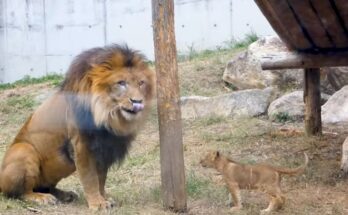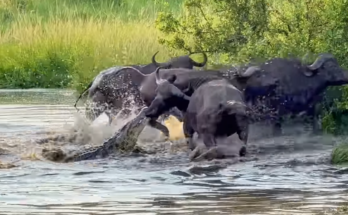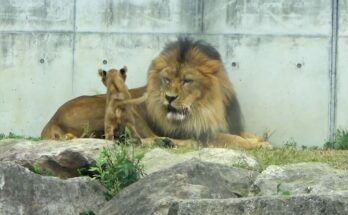At Werribee Open Range Zoo in Victoria, Australia, a delightful sight has captured the hearts of visitors and staff alike — lion cubs playfully interacting with their family. These young cubs, full of energy and curiosity, can often be seen tumbling through the grass, pouncing on each other, and playfully tugging at their mother’s tail under the watchful eyes of their pride.
Play is not just fun for lion cubs; it’s an essential part of their development. Through wrestling, stalking, and mock hunting, they learn the skills they’ll need as adult lions. These early interactions also strengthen the bond within the pride and teach cubs the social rules of lion life. Watching them at play offers a glimpse into their world — one filled with affection, hierarchy, and learning through action.
The lion habitat at Werribee Zoo is designed to closely mimic their natural environment, giving both cubs and adults space to roam, rest, and interact naturally. Zookeepers and veterinarians carefully monitor the cubs’ health and development, ensuring they grow strong and confident.
Guests visiting the zoo are often treated to these special moments, especially in the mornings when the cubs are most active. It’s a rare opportunity to observe lion family dynamics up close — from the patient tolerance of the adult lions to the unfiltered enthusiasm of the cubs. Moments like these highlight the importance of conservation efforts, reminding us why protecting lions in the wild is so vital. At Werribee Zoo, these cubs are not just ambassadors for their species — they’re living proof of the success of dedicated care, breeding programs, and education in modern zoos.


